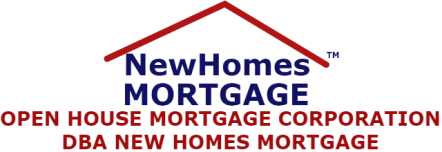

As you begin the mortgage process, you’ll have lots of terminology thrown at you that can be a little confusing. Two similar sounding terms that might have you perplexed are conforming and conventional loans. Are these the same thing? Here’s what you need to know:
Bird’s Eye View
The quick answer is no, conventional and conforming loans are not the same, although one can be both. A conventional mortgage is a loan that is not guaranteed by the federal government. A conforming loan is one that meets the federal government size requirements.
In-Depth Look
Conventional Loans
In the U.S. mortgage world, the two basic categories of loans are conventional and government-insured. A conventional mortgage is what you would think of as a traditional or normal loan that is made by private lenders and does not receive federal backing.
Government-insured are obviously the opposite. They are guaranteed by different federal agencies to provide easier access to homeownership for certain groups of Americans. For example, the Federal Housing Administration sponsors FHA loans that are great for first-time buyers and those with less-than-perfect credit histories. The Department of Veterans Affairs backs VA loans made to active duty military and veterans as a bonus for their service to their country. And the Department of Agriculture guarantees USDA loans to encourage more Americans to buy in rural areas. With all of these loans, if the borrower ever defaults, the sponsoring government agency promises to pay the lender back for their losses. This takes more of the risk out of these loans to borrowers who otherwise might not qualify for mortgages.
Conventional loans have more stringent requirements in terms of credit score, down payment, and debt-to income ratios, but they are often less expensive in the loan run than government-insured loans.
Conforming Loans
Within either conventional or government-backed loans there can be conforming and non-conforming mortgages. Most lenders do not hold onto the loans they make very long. They sell them to investors who then bundle hundreds of loans together and sell them as stocks on the secondary market. The two largest U.S. investors by far are Fannie Mae and Freddie Mac, government-sponsored entities (GSEs) created by the government to reduce risk for lenders and help more Americans become homeowners.
But Fannie and Freddie want to make sure that they buy loans that are relatively safe so they don’t end up reimbursing lenders for tons of failed mortgages. To get good quality loans, Fannie and Freddie create requirements for the types of loans they will buy from lenders. This includes loan limits that are comparable to the average house price of an area. If a mortgage falls within this limit, it is called “conforming” because it conforms or fits the Fannie and Freddie rule. If a mortgage amount is higher than the area’s conforming limit, it is called a “jumbo” loan and often comes with a higher interest rate than those on conforming loans.
Wrap Up
A conforming loan can be a conventional loan, but they are totally distinct concepts and should not be confused for the same thing.
If you or someone that you know is in the market for a new home, please give us a call today!
